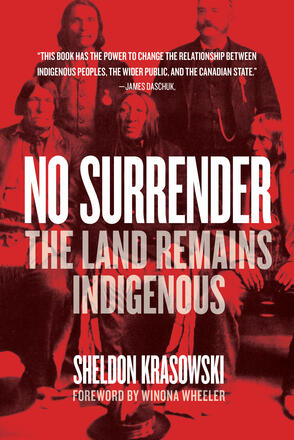
No Surrender
The Land Remains Indigenous
La description
Between 1869 and 1877 the government of Canada negotiated Treaties One through Seven with the Indigenous peoples of the Great Plains. Many historians argue that the negotiations suffered from cultural misunderstandings between the treaty commissioners and Indigenous chiefs, but newly uncovered eyewitness accounts show that the Canadian government had a strategic plan to deceive over the “surrender clause” and land sharing.
Reviews
"[A] very important, fresh, and valuable work. " —Sarah Carter, author of Imperial Plots
"A valuable book. ... It helps set the stage for the future. " —Literary Review of Canada
"No Surrender is a detailed account of treaty negotiations and of the differing understandings of the treaty-making process, as seen through an unbiased lens. Indigenous people didn’t lack knowledge and were not ignorant savages — as they’ve been portrayed by some historians. Indigenous people understood sovereignty over territory, even though land ownership in the European sense was unknown. They wanted to use the treaties to build a better life for future generations, while the government wanted the land and saw no intrinsic value in the Indigenous nations that had ruled the land for centuries. That was a tragic flaw that continues to haunt Canada and the First Nations. " —Canada's History
"Krasowski’s work effectively incorporates Indigenous oral histories and research methodologies by viewing the treaties as sacred undertakings confirmed through ceremony. ..By so doing, he more broadly challenges mainstream stereotypes that oral history is inherently invalid or that it conflicts with text-based sources. " —Ontario History